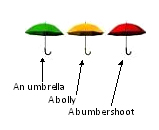On June 18, two entirely different panels of the Fifth Circuit Court of Appeals affirmed judgments in favor of insurance companies on the grounds that the policyholder’s notice was untimely under the policy’s pollution buyback. Starr Indemnify & Liability Co. v. SGS Petroleum Service Corp. and Settoon Towing LLC v. St. Paul Surplus Lines Insurance Co. both involved a form of umbrella insurance known as bumbershoot. These policies insured transportation companies and included both an absolute pollution exclusion and a pollution buyback. The exclusion barred coverage arising from the release of pollutants in any circumstances, while the buyback would allow such coverage in certain circumstances if the release were reported to the insurers within thirty days after the policyholder learned of it.
In Starr, the policyholder spilled a carcinogenic chemical while unloading it and did not give the insurer notice for fifty-nine days. In Settoon, the policyholder’s tugboat hit an oil well, which then leaked into a bayou. The policyholder did not give notice for thirty-seven days. In both cases, the district courts awarded the insurers judgment, which the Fifth Circuit affirmed.
In many jurisdictions, an insurance company must prove prejudice in order for an occurrence policy’s coverage to be denied for want of timely notice. Occurrence policies’ time limits on giving notice are not treated as essential to their coverage. In these two cases, the policies were occurrence-based. However, the buyback was an exception to the pollution exclusion. It added coverage for certain spills if notice were given within thirty days. The policyholder would not lose coverage if it failed to give notice. Rather, it would gain coverage only once it gave notice. Enlarging the period for notice would expand the coverage beyond the parties’ agreement. Texas law in Starr and Louisiana law in Settoon led the Fifth Circuit to enforce the deadline as written regardless of whether the delay in notice prejudiced the insurers.
Each policyholder had an excuse for its late notice. In Starr, the policyholder did not notify the insurer in time because it did not expect its costs to pierce the layer, which attached at $2 million. In Settoon, though the policyholder was aware of the spill the day after it happened, it was unaware it had caused it: the tugboat’s captain denied that he hit the oil well  until it was too late for the policyholder to give timely notice. But the buyback makes no exceptions for the policyholder’s ignorance of the extent of the loss or of its responsibility for the spill.
until it was too late for the policyholder to give timely notice. But the buyback makes no exceptions for the policyholder’s ignorance of the extent of the loss or of its responsibility for the spill.
The Starr opinion may be found here, while the Settoon opinion may be found here.
Incidentally, “bumbershoot” is slang for umbrella, but it is not the British slang for umbrella, which is “bolly.”







